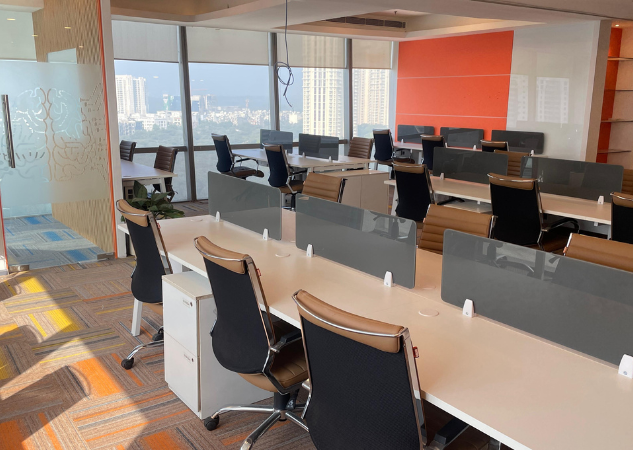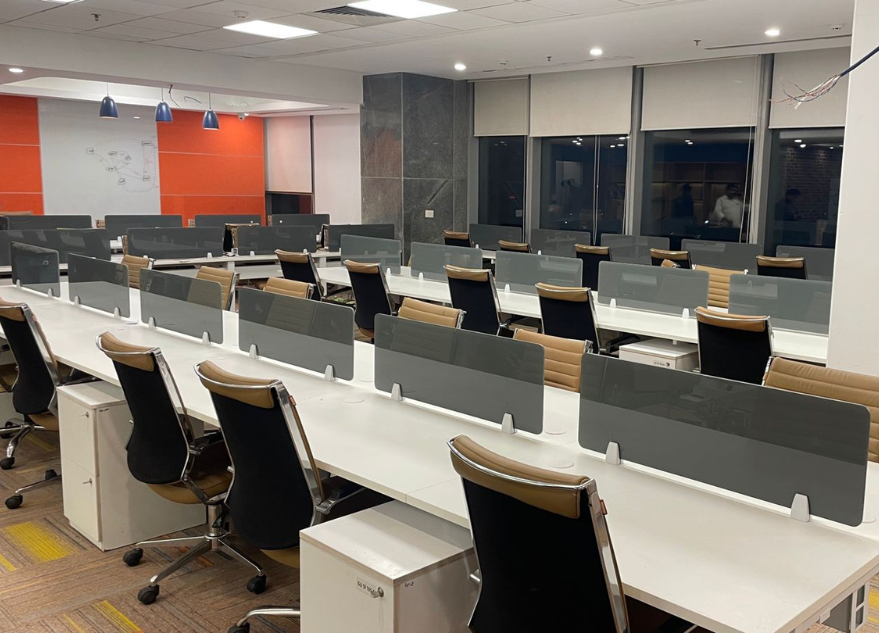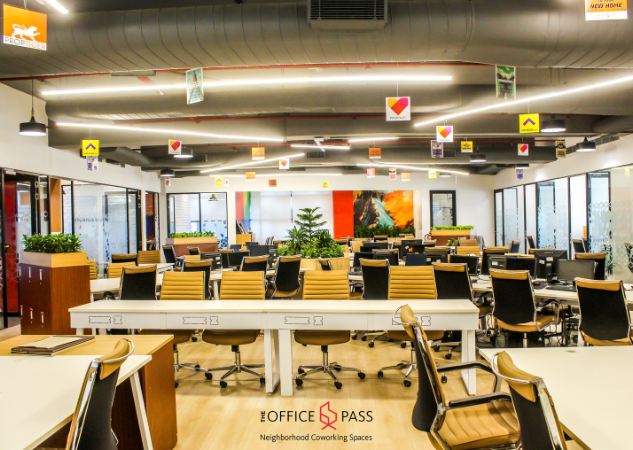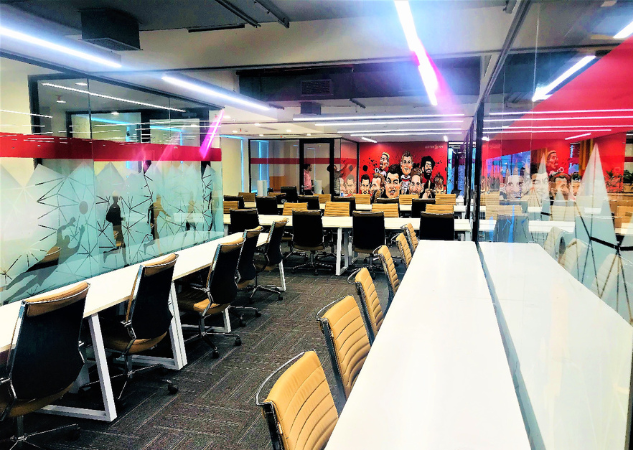Coworking spaces offer community; incubators provide support. Together, they create a powerful growth ecosystem for startups—combining flexibility, funding, mentorship, and networking to fuel innovation and success.
💡 Are you looking for Coworking space in Gurgaon, Noida or Delhi? We are just a call away.
Call Now: 08999 828282
10 Key Benefits of Partnering Coworking Spaces and Business Incubators
- Stronger Support System
- Cost-Effective Workspaces
- Access to Funding Opportunities
- Increased Collaboration and Networking
- Tailored Business Development Programs
- Enhanced Productivity and Innovation
- Co-Hosting Industry Events
- Stronger Business Community
- Access to Legal and Administrative Support
- Scalability for Startups
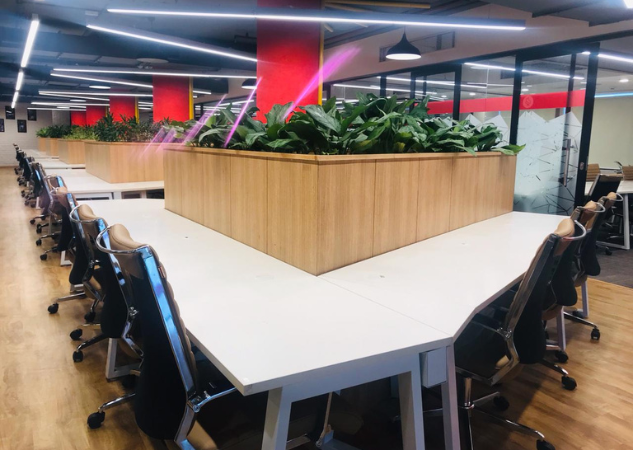
1. Stronger Support System
When startups join a coworking space that is linked with a business incubator, they gain access to a robust network of mentors and advisors. This means that entrepreneurs can get personalized advice on refining their ideas, developing strategies, and overcoming challenges. Regular workshops, one-on-one mentoring sessions, and networking events help create a community where everyone supports one another in their journey toward success.
2. Cost-Effective Workspaces
Renting traditional office spaces can be expensive for early-stage companies. Coworking spaces offer an affordable solution by providing flexible rental options, which means that startups can work in a professional environment without a hefty financial commitment. This cost-effectiveness allows businesses to allocate more resources toward research, product development, and marketing.
3. Access to Funding Opportunities
Business incubators often have established relationships with investors, venture capitalists, and financial institutions. By collaborating with a coworking space, startups can tap into these funding networks much faster. The incubation programs often include pitch preparation sessions and demo days, where businesses can showcase their products or services directly to potential investors, significantly increasing their chances of securing capital.
Also Read: Difference between Coworking Spaces and Incubators
4. Increased Collaboration and Networking
Working in shared workspaces naturally encourages dialogue and idea-sharing among entrepreneurs. In a setting where multiple startups operate in close proximity, there’s ample opportunity to learn from peers, form partnerships, and discover potential customers. This collaborative atmosphere can lead to innovative solutions and cross-industry partnerships that might not occur in isolated office settings.
5. Tailored Business Development Programs
One size does not fit all, and this is especially true for startups. Business incubators provide customized programs that include skill-building workshops, strategic planning sessions, and market analysis. These tailored programs help entrepreneurs refine their business models and prepare for the challenges ahead. The synergy of these programs with the practical, day-to-day environment of a coworking space allows startups to immediately apply new skills and insights to their work.
6. Enhanced Productivity and Innovation
A dynamic and well-equipped workspace inspires creativity and keeps entrepreneurs motivated. Flexible workspaces provide a modern and efficient environment that can boost productivity. With access to the latest technology, high-speed internet, and quiet areas for focused work, startups can operate at their best. Moreover, the innovative spirit that thrives in these spaces encourages creative problem solving, which is essential for overcoming industry challenges.
7. Co-Hosting Industry Events
Regularly hosting networking events, hackathons, and pitch competitions can be a game-changer for startups. When coworking spaces and incubators join forces to organize such events, they provide platforms for businesses to showcase their innovations, gain feedback from industry experts, and connect with potential collaborators. These events also serve as a great marketing tool, attracting media attention and building the reputation of the business community.
8. Stronger Business Community
A supportive community is key to long-term success. When startups operate within an ecosystem that values collaboration, they benefit from the shared experiences of others. This sense of community can lead to enduring partnerships, where businesses collaborate on projects, share resources, and support each other through tough times. The strong network built within these business hubs contributes to a culture of mutual growth and learning.
💡 Are you looking for Coworking space in Gurgaon, Noida or Delhi? We are just a call away.
Call Now: 08999 828282
9. Access to Legal and Administrative Support
Navigating the legal and administrative side of running a business can be daunting for new entrepreneurs. Business incubators often provide essential support services, including legal advice, tax assistance, and help with business registration. This reduces the administrative burden on startups, allowing them to focus more on innovation and growth. Such support is crucial for ensuring that businesses meet regulatory requirements and avoid common pitfalls.
10. Scalability for Startups
As startups evolve, their needs change. The flexibility offered by coworking spaces means that businesses can easily scale up or down without the constraints of long-term leases. This scalability is particularly important for early-stage companies that might need additional space or resources as they grow. The ability to adjust their environment in real time helps startups maintain momentum and continue on the path to business growth.
The collaboration between coworking spaces and business incubators is a game-changer for startups, offering the perfect mix of flexibility, mentorship, and resources. By working together, they create a dynamic ecosystem that fuels innovation and accelerates growth. The Office Pass (TOP) is at the forefront of this movement, providing vibrant coworking spaces that empower entrepreneurs and small businesses. If you’re looking for a supportive and well-connected workspace, TOP is your ideal partner. Join The Office Pass today and take your business to the next level! Contact TOP at 8999 82 82 82 to find your ideal coworking space today.
FREQUENTLY ASKED QUESTIONS (FAQS):
Question: What is a coworking space?
Answer: A coworking space is a shared workspace where individuals such as freelancers, remote workers, and entrepreneurs work side by side. These spaces offer a professional environment with flexible work areas, high-speed internet, meeting rooms, and opportunities for networking.
Question: What is a business incubator?
Answer: A business incubator is a program designed to support early-stage startups and small businesses by providing mentorship, funding guidance, business development training, and resources to help them grow and succeed.
Question: How do coworking spaces benefit startups?
Answer: Coworking spaces provide startups with affordable, flexible work environments. They reduce the need for long-term leases, offer access to modern facilities, and create an energetic atmosphere where entrepreneurs can share ideas and collaborate.
Question: How do business incubators support entrepreneurship?
Answer: Business incubators support entrepreneurship by offering tailored programs that include mentorship, strategic planning, workshops, and access to investors. This guidance helps entrepreneurs refine their business models and navigate challenges.
Question: How can coworking spaces and incubators work together?
Answer: When coworking spaces and incubators join forces, they create comprehensive business hubs. This collaboration enables startups to access practical work environments along with expert advice, funding connections, and business development programs under one roof.
Question: What kind of support does a business incubator provide?
Answer: Business incubators offer various types of support, such as one-on-one mentoring, legal and administrative assistance, market analysis, and networking events. They also help startups prepare for funding opportunities through pitch training and investor introductions.
Question: How does a shared workspace promote collaboration?
Answer: Shared workspaces bring together diverse groups of professionals in a single location. This environment fosters networking and the exchange of ideas, leading to innovative solutions and potential partnerships that benefit all members.
Question: What are the cost advantages of coworking spaces?
Answer: Coworking spaces are generally more affordable than traditional offices because they offer flexible rental agreements and eliminate the need for long-term commitments. This allows startups to reduce overhead costs and allocate funds to growth and development.
Question: How do incubators help with legal and administrative issues?
Answer: Incubators often provide access to experts who can help with legal matters, tax issues, and business registration. This support ensures that startups comply with regulations and have the necessary legal framework to operate efficiently.
Question: How can partnerships between coworking spaces and incubators drive business growth?
Answer: By combining resources, expertise, and networks, these partnerships create a dynamic environment that fuels innovation and entrepreneurship. Startups benefit from cost-effective workspaces, professional support, and increased opportunities for networking and funding, all of which contribute to long-term business growth.




